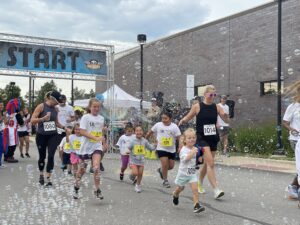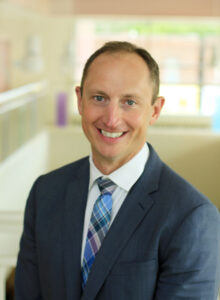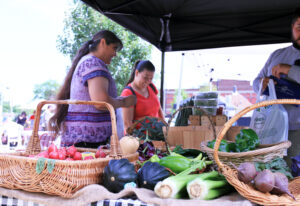Source: Special to Michigan News

The annual CHASS 5K Run/Walk and Kids Race.

The annual CHASS 5K Run/Walk and Kids Race.
On any given day at the Community Health and Social Services Center in Southwest Detroit, you might find a gardening demonstration, cooking class or families doing a Zumba workout to upbeat Latin music.
The center serves about 10,000 people each year, 60% of whom request services in a language other than English, primarily Spanish – a reflection of the area’s prominent population of immigrants from Mexico and Central America. The center opened in 1970 and was one of the founding community organizations of the University of Michigan’s Detroit Urban Research Center established in 1995 and the Summer Enrichment Program in the mid 1980s.
Dr. Richard Bryce, who has been the chief medical officer at CHASS since 2012, shares more about the center’s history and its involvement with community-based participatory research with U-M’s School of Public Health, School of Social Work, College of Pharmacy and Michigan Medicine.
CHASS offers medical and dental care, behavioral health, a pharmacy and social support services to people of all ages regardless of insurance status. Wellness programs include domestic and sexual violence resources and prevention, the supplemental nutrition and breastfeeding education program for Women, Infants and Children, a seasonal farmers market and the annual CHASS 5K Run/Walk and Kids Race.
How long has CHASS served southwest Detroit?

Dr. Richard Bryce
The Community Health and Social Services Center has been part of the southwest Detroit community for 53 years. Before 1970, there were four community hospitals in Detroit, but the population was moving to the suburbs. Now all of those community hospitals are long gone. Community leaders and residents in southwest Detroit realized this was coming, so it was a grassroots effort to establish an organization that could meet the community’s need for affordable health care and social services. Understanding that has really stuck with CHASS for all of these years. The “why” in what we do has always been related to how we can support our community.
Tell us about some projects CHASS worked on with U-M.
CHASS was one of the founding members of the Detroit URC, due to the efforts of Ricardo Guzman, (MPH ‘97) one of CHASS’s founding leaders and CEO for over three decades. Over the years, there’s been numerous projects. Probably the most famous one was the Racial and Ethnic Approaches to Community Health project, which implemented community health workers to help patients and communities self-manage diabetes.
We also have the ELLAS project, which is a fibroids prevalence study for Latina women aged 25 to 50. Right now, there’s no data on the percentage of women who identify as Latina and have fibroids. We’ve been able to really do some great work on that with Dr. Erica Marsh and her team. With Paul Fleming, we’re brainstorming and hoping to work with him on immigration stress in our patient population.
What do you value most about your partnerships with U-M?

CHASS seasonal farmers market
As a Federally Qualified Health Center, we provide care to all people regardless of insurance status or income level. In 2022, 37% of our patients reported being uninsured. Financially, that can be limiting in terms of creating opportunities to help our patient population. For us, we’ve been able to utilize funding that comes through research to learn and offer new evidence-based, culturally and linguistically appropriate services to help patients be healthy. So that’s been beneficial.
I think this has a lot to do with the Detroit URC: Mutual respect has allowed these relationships to thrive over many years. That is not always the case. Some institutions like research and data and would sacrifice a relationship with the study participants. Working with good researchers who aren’t only here for the research but engage with the community and understand participants’ culture and language to help achieve meaningful data is really important to us.
Looking at the ELLAS project, for example, we have done multiple events sharing the data we’re learning. With any community event, it can be hard to get good turnout. But with the ELLAS team and people feeling very connected to the work, we had hundreds of people coming to learn about the data from this research project. That emphasizes the great partnership between the researchers and the community and that the community felt like they had a voice in this.
What advice would you give to other organizations interested in partnering with U-M?
If you understand who you are as an organization and what you are trying to accomplish and that overlaps with parts of U-M, there is a lot of potential to do good. For community organizations, know your voice is very strong. Many of the people at U-M understand the importance of the voice of the community partner, so make sure you stay strong and have that mutual respect so all parties win in the end.
Looking for a simple solution to instagram post download? Try our fast and efficient tool.


